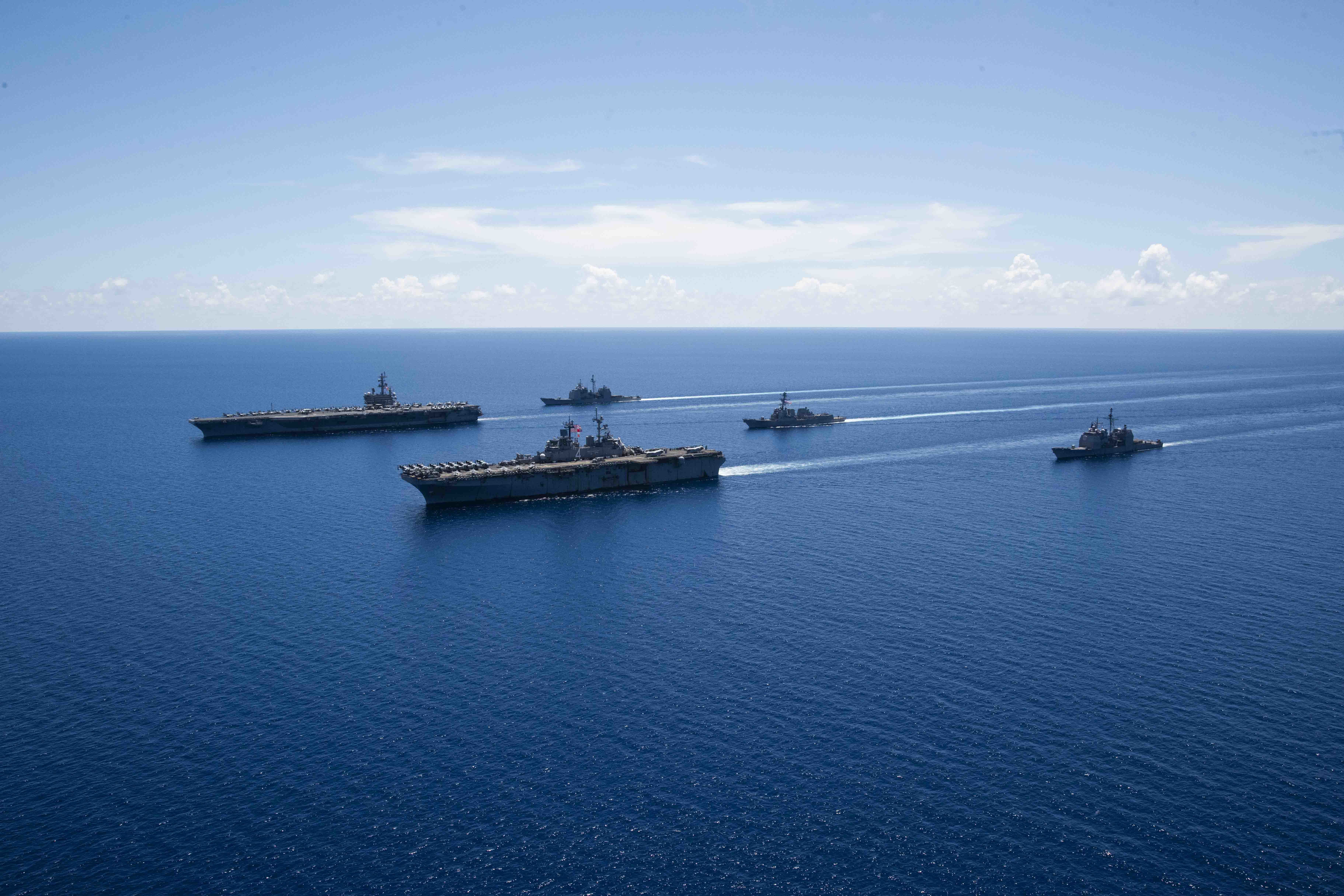
WASHINGTON, D.C. — The Navy’s stepped-up freedom of navigation transits in the South China Sea sends an unmistakable message to China and other nations in the region, a State Department official said this week.
Officials in Beijing and other capitals see the transits as the “demonstrated resolve” of the United States to keep sea lanes open, retired Air Force Brig. Gen. David Stillwell, the current assistant secretary of state for East Asian and Pacific Affairs, said Monday at the Brookings Institution.
The United States’ long-term commitment to the Indo-Pacific is demonstrated to allies and partners in the region through the FONOPs and humanitarian responses to natural disasters, such as U.S. military assistance to the Philippines following Typhoon Kammuri, he said.
In contrast, China sees relations with its neighbors as transactional. The prevailing thinking in Beijing’s leadership circles is, “China is a big country. Big makes right,” Stillwell said. With that mindset, China “does require compliance,” across the Indo-Pacific.
China’s leadership claims everything from advantages in trade with other nations to mineral rights on the ocean’s floor to establishing exclusive economic zones in disputed waters in the South China and East China seas, he said.
In contrast, the United States does not view interactions with regional partners or even with rivals such as China as a “zero-sum game,” Stillwell said. Washington welcomes “pluralism” in the region. “It means diversity … openness” where nations “are free to be themselves.”
Washington does not force countries to choose between the U.S. and China. Even in nations where recent rhetoric suggests there are strains in relationships between Washington and other governments such as in the Philippines, Stillwell said the facts say otherwise.
American policy “gladly incorporates a growing China” in its view of continuing the 70-year-old policy of “win-win” for all in Europe and Asia, he said.
The U.S. view of openness is shared by Japan, South Korea, Australia and India. These countries are investing resources economically and militarily to maintain the necessary security that allows for growth.
However, the U.S. government’s willingness to promote openness and sharing among allies and partners has its limits. With “information security,” Washington has drawn a line on welcoming Chinese businesses to U.S markets and warned allied and partners of the dangers of adopting Huawei technology.
U.S. officials rejected Chinese telecommunications giant Huawei as a provider for 5G networks. The U.S. is urging other nations also to stay clear of the company, Stillwell said. “We want to share (information, including classified) on systems that we know are secure.”





